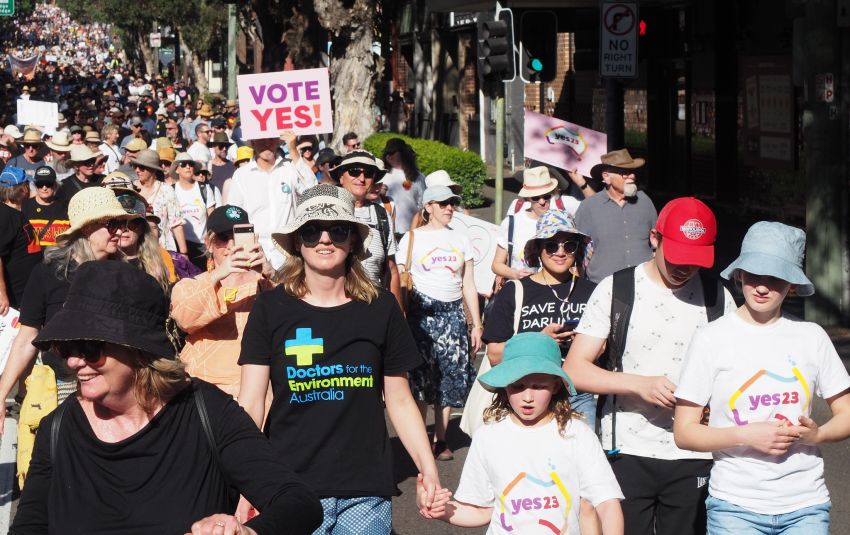
I was fortunate to experience the best of First Nations’ controlled initiatives that helped to close the gap in my job as a former flying doctor and remote area locum.
I was in the Torres Strait for Mabo Day in 2014 when people from all the islands came to celebrate their culture and take part in sporting activities.
Their fish-based diet meant they had low heart disease. Service delivery was team based, and addressed their priorities, including sex education and contraception. A separate team delivered diabetes management and education. Locally employed teams trained service providers, creating employment and delivering better outcomes.
The Mawarnkarra Health Service (mawarnkarra means “one with power to heal”) in Roebourne was the best I had seen.
It employed 56 local First Nations people, including health workers to gardeners. A team-based approach to addressing local priorities led to better immunisation rates and aged care health checks.
The service, co-funded by Rio Tinto, is totally First Nations’ controlled.
In Ngaanyatjarra country (Warburton) the community ran an amazing preschool program. Mums would return from Kalgoorlie where they delivered their new babies and would enrol in a certificate course in either early childhood or catering.
The centre was equipped with laundry, bathrooms and a commercial kitchen, initially paid for by the local Aboriginal corporation. All the children’s books were bilingual and every child was school ready and literate before they started school.
All the mothers would graduate with a ready-made job waiting for them. Health outcomes were excellent. There were very little school sores and infections, due to good hygiene and healthy development with good food.
The corporation’s semi-trailer would deliver fresh food once a week at city prices, subsidised by putting a loading on less healthy foods like cola and biscuits.
Sadly, these success stories are the exception not the rule.
Dissemination of these programs to other communities lacks the coordination that the Voice to Parliament would provide to close the gap across all communities.
One of the principles of the Voice is that solutions should be locally based, not rules imposed from Canberra like so many decisions, including the racist Northern Territory intervention, were.
As epidemiologist Professor Fiona Stanley pointed out, the Tony Abbott Coalition government cut funding to 75 programs that delivered programs such as maternal nutrition and awareness of foetal alcohol syndrome. All related measures became worse after the government-imposed intervention.
Sadly, the one vote one value system means that a majority ignores the needs of the minority. The votes of the baby boomers has made sure they continue to get generous superannuation and pensions at the expense of other programs.
Another principle is that the Voice will not fund programs, but rather rely on evidence-based outcomes to recommend that parliament does: these initiatives include justice reinvestment programs to reduce youth incarceration.
First Nations peoples need a constitutional voice that cannot be taken away. They need to be recognised as the First Peoples for their 60,000+ year continuous culture.
The British-written constitution didn’t even recognise First Nations peoples’ right to be counted as citizens in the census until 1967.
Many individual groups have a voice to parliament: the very well-funded Business Council of Australia; the Minerals Council of Australia, medical lobby groups and bodies representing aged care and disability.
Those who have lived and worked in remote communities understand that all the privileges of communication, education and readily-accessible health care that enable most of us to have a voice is denied to the most vulnerable communities.
Many Closing the Gap targets have gone backwards. We need a new way of finding programs that are community controlled, co-designed and that work.
I will be voting Yes to the Voice. I am proud that my college, the Royal Australian College of General Practitioners, after careful consultation with the Aboriginal faculty, has come out in favour of the Voice. We see it as a way to correct 130 years of exclusion from the Constitution and a practical way of closing the gap.
[Dr Colin Hughes is a former chair of the Royal Australian College of General Practitioners, Western Australia.]